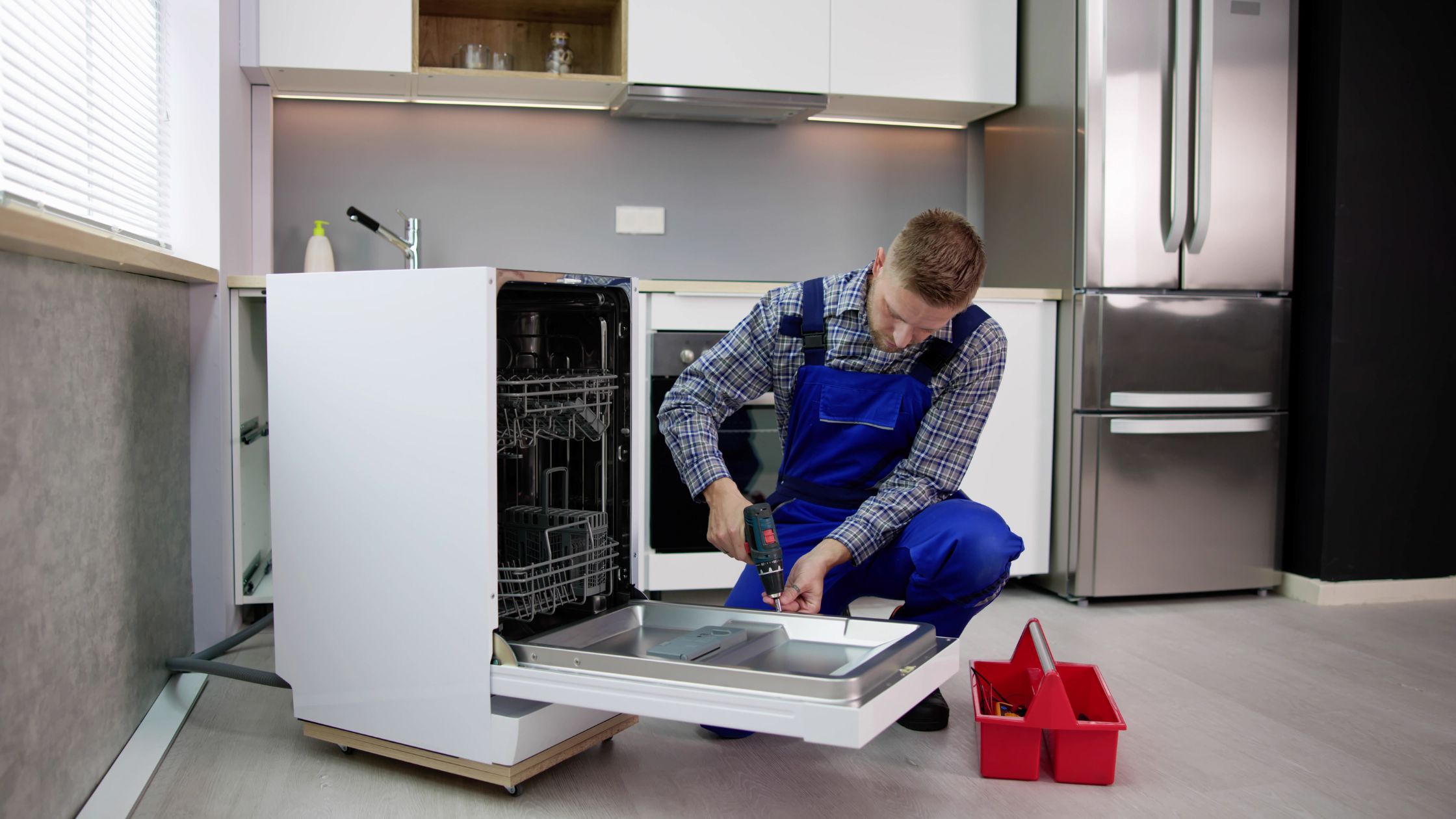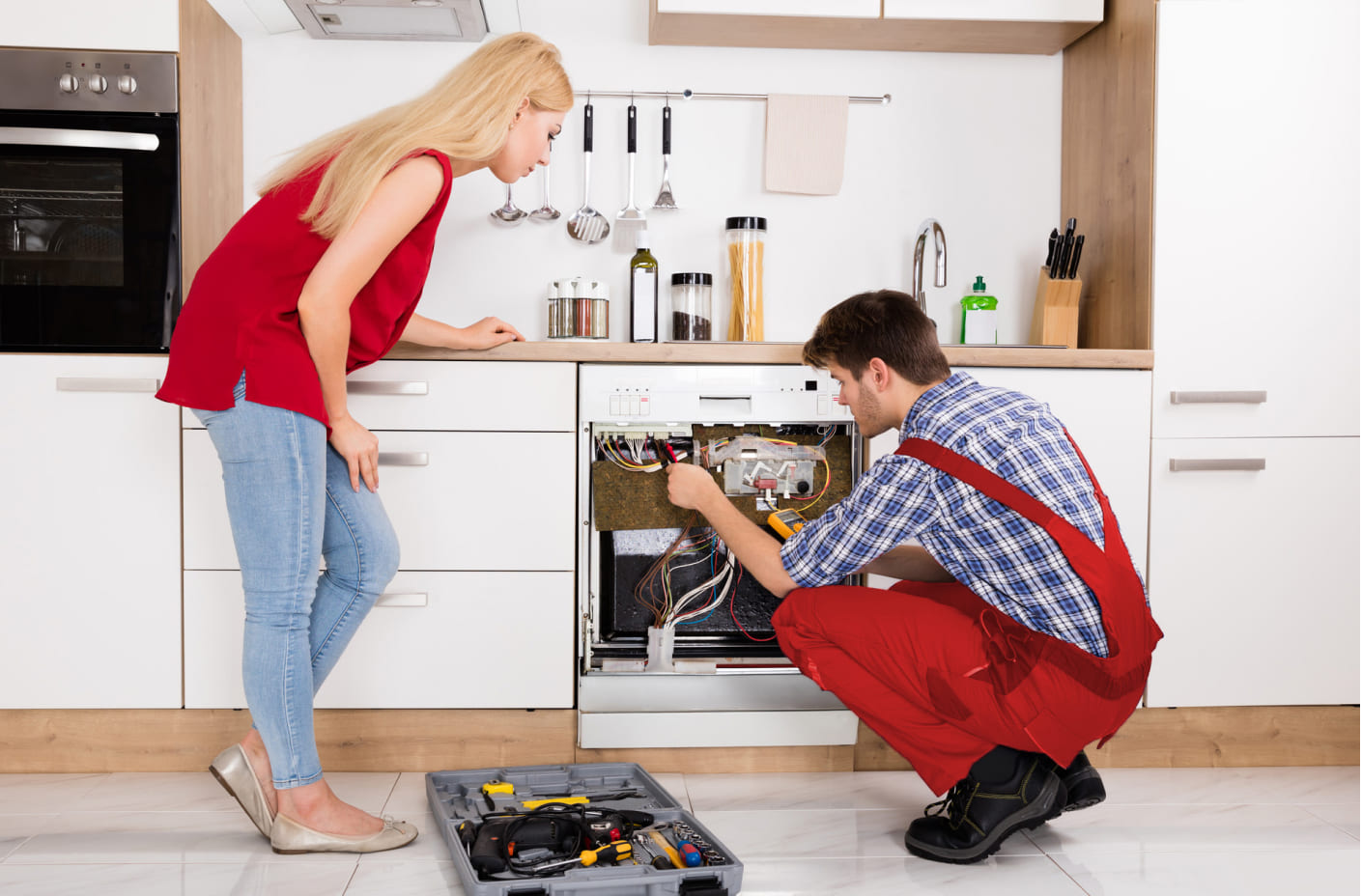The Ultimate Overview to Recognizing Appliance Repair Service in the house
When your fridge quits cooling down or your stove rejects to warmth, it can really feel frustrating. Understanding device repair work in the house can conserve you time and cash. You'll discover to identify signs and symptoms, make use of necessary devices, and comply with a methodical troubleshooting process. Prior to you begin, there are vital safety and security preventative measures you require to take right into account. What are one of the most usual problems, and exactly how can you fix them? Let's explore the essentials.
Common Appliance Problems and Their Signs and symptoms
When your home appliances start breaking down, it's necessary to recognize the indications at an early stage. Neglecting them can result in larger issues and expensive repairs. If your fridge isn't cooling down properly, you could notice warm places or condensation creating. This could suggest a stopping working compressor or a blocked vent.Your dishwashing machine might reveal troubles via dirty recipes or unusual noises during cycles. If you listen to grinding or clanking, it's time to investigate.A washing machine that will not spin or drain can leave you with soggy laundry, suggesting a clogged up drain or a malfunctioning pump.Lastly, if your stove's temperature level seems off or it takes forever to pre-heat, you may be taking care of a malfunctioning thermostat. By remaining alert to these symptoms, you can resolve concerns prior to they rise right into significant repairs.
Necessary Tools for Home Appliance Repair Service
When you're dealing with home appliance repair work in your home, having the right devices is important. Basic hand devices like screwdrivers and pliers will aid you dismantle and take care of different home appliances, while electric testing tools assure you're working securely with electrical wiring. Allow's review what you need to get going on your repair trip.
Fundamental Hand Tools
Having the right tools is crucial for efficient appliance fixing in the house. Begin with a trusted screwdriver set, consisting of both flathead and Phillips types, as screws prevail in home appliance setting up. Pliers are also crucial; they assist with gripping, twisting, and reducing cables or small parts. A set of needle-nose pliers can reach limited spots quickly. You'll require a great flexible wrench for tightening up or loosening nuts and bolts. An utility blade is convenient for reducing via packaging or insulation. Finally, don't forget a durable workbench or surface to safely organize your devices and parts. With these basic hand tools, you'll be well-prepared to take on most home appliance repair work that come your means.
Electric Screening Devices
Alongside standard hand tools, electrical screening gadgets play a necessary duty in device repair. These devices help you identify electrical problems and guarantee devices work securely. A multimeter is essential; it gauges voltage, existing, and resistance, enabling you to identify issues promptly. A non-contact voltage tester is an additional must-have, allowing you spot live cords without making straight contact, enhancing your safety. Secure meters are excellent for measuring present circulation in wires without disconnecting them, saving you effort and time. Additionally, circuit testers can promptly examine if electrical outlets are functioning appropriately. By making use of these gadgets, you'll improve your troubleshooting process and boost your repair work abilities, making appliance upkeep a whole lot less complicated.
Step-by-Step Overview to Diagnosing Appliance Issues
When your home appliance acts up, it can be frustrating, yet detecting the concern does not have to be frustrating. You'll discover to determine typical troubles and apply efficient repairing techniques. Allow's stroll via the steps to get your device back in working order.
Usual Device Issues

Troubleshooting Methods Explained

Repairing Significant Kitchen Area Appliances: A Closer Look
Have you ever wondered just how to tackle Clicking Here typical concerns with your cooking area home appliances? Repairing major kitchen home appliances like refrigerators, stoves, and dish washers can be easier than you assume. Begin by recognizing the issue-- whether it's a fridge not cooling or a stove that won't heat. Usually, a basic reset or checking the power source can fix the issue.For refrigerators, tidy the condenser coils and check the door seals. If your oven's not heating, evaluate the burner and thermostat. Dishwashing machines may simply require a clean filter or a reset to get them back at work. Constantly disconnect the home appliance before diving into repairs to guarantee your safety.Don' t fail to remember to get in touch with the individual guidebook for details repairing tips associated with your design. With a little bit of perseverance and the right tools, you can with confidence tackle appliance repairs and save money while doing so!

Fixing Washing Devices: Tips and Techniques
When your washing devices start breaking down, it can really feel frustrating, yet fixing them doesn't need to be a trouble. Start by checking the power supply. Confirm the home appliance is connected in and the electrical outlet is working. Next, inspect the door or cover switch; a malfunctioning switch can prevent the device from operating.For washers, if it's not spinning, check for out of balance loads. Redistributing the clothes may resolve the issue. If your dryer isn't home heating, tidy the lint filter and examine the vent for blockages.Listen for uncommon sounds; they can indicate a trouble. If your appliance is dripping, examine the tubes for fractures or loose connections. Record any type of error codes displayed on digital displays, as they can guide you in identifying the issue. Get in touch with the individual manual for certain repairing tips related to your design.
Safety Precautions to Take Throughout Repair works
Prior to you begin any type of home appliance repair work, it's important to focus on safety to prevent mishaps or injuries. First, disconnect the appliance or switch off the breaker to guarantee no power reaches it while you function. Usage insulated devices to minimize the threat of electrical shock. Wear safety goggles and handwear covers to protect on your own from sharp sides or debris (Dependable Refrigeration & Appliance Repair Service Washer repair near me).Make specific your work space is clean and well-lit, so you can see what you're doing. Maintain youngsters and family pets away from look at these guys the area to prevent interruptions and possible risks. If you're taking care of gas home appliances, be additional cautious; look for leaks before proceeding.Take your time, and do not hurry with repairs. If you feel uncertain concerning any type of action, it's much better to stop briefly and research than to guess. Complying with these safety measures will certainly assist produce a more secure atmosphere for your DIY home appliance repair task
When to Call a Specialist for Help
Exactly how do you know if it's time to call a professional for appliance fixings? If you have actually tried fundamental troubleshooting without success, it's a clear sign. If your appliance still will not begin or shows uncommon noises after resetting it, do not be reluctant to seek professional help.When you observe leaks, smoke, or shedding smells, focus on safety and call a pro right away. These concerns can cause even more substantial damages or posture threats to your home.Also, if your device is under service warranty, contacting an expert is frequently the most effective path. They can guarantee that repairs won't void your warranty, conserving you cash in the long run.Finally, if you're not sure or unpleasant with complicated repair services, it's a good idea to leave it to the professionals. Remember, dealing with complicated issues without the right experience can lead to expensive mistakes. Trust fund a professional when unsure!
Often Asked Questions
Just How Can I Stop Home Appliance Issues in the Future?
To stop device issues in the future, you should perform regular upkeep, check for damage, clean filters, and prevent overloading. Remaining proactive will help prolong their life-span and keep them running smoothly.
What Are the Most Typical Do It Yourself Home Appliance Repair Work Mistakes?
You could neglect safety preventative measures, miss troubleshooting actions, or utilize inaccurate devices when trying do it yourself home appliance fixings. Hurrying the process or overlooking supplier guidelines can bring about more substantial issues and costly mistakes. Stay patient and notified!
Exactly how Do I Know if a Part Demands Substitute?
You can inform if a part needs substitute by checking for uncommon noises, leakages, or inconsistent efficiency. If the appliance battles to operate correctly or shows visible damages, it's most likely time for a replacement.
Can I Use Generic Components for Device Fixes?
Yes, you can make use of common parts for home appliance fixings, yet establish they're suitable - Dependable Refrigeration & Appliance Repair Service Washing Machine Repair. Generic parts might conserve you cash, however they can influence efficiency or long life, so evaluate your choices thoroughly before choosing
What Warranties Cover Home Appliance Repair Works?
The majority of appliance warranties cover repair services for producing problems, but they typically exclude damage from misuse. Examine your warranty terms very carefully, as some might need using qualified service technicians and original components for insurance coverage to stay valid.